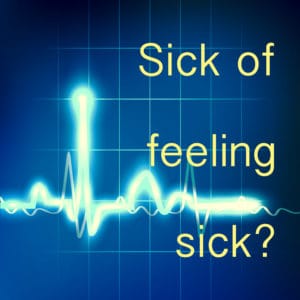Suffer from a range of symptoms and haven’t had any success with treatment? There is a condition that gets overlooked by doctors. And it can explain a lot for people who can’t find answers anywhere else: Histamine Intolerance
What is histamine?
Histamine is a natural compound found in the body. Mast cells of the body produce histamine (in regulated appropriate amounts, if all is working well).
We need histamine for multiple reasons:
-Regulation of stomach acid; digesting your food
-Effectively moving your bowels
-Muscle contraction
-Enhance exercise
-Brain function; paying attention and staying focused
-Deliver blood, nutrients, and oxygen to various areas of the body.
Histamine is also found naturally in some foods and the microbes on our food or in our gut produce it. If we have enough histamine degrading enzymes (DAO is the main one), then we should be able to degrade all the histamine that is produced or ingested.
Histamine Intolerance
Histamine intolerance occurs when there is an accumulation of histamine and/or the inability to degrade it. High histamine can cause all kinds of unpleasant symptoms including:
- Diarrhea
- Headache
- Flushing
- Rashes, eczema
- Low blood pressure
- Rapid heart beat
- Runny nose, watery eyes
- Swelling
- Heartburn
- Insomnia
- And others…
Causes
Histamine comes from:
- The body (mast cells doing their job)
- Foods
- Microbes (in gut)
The causes of histamine intolerance are many and complicated. Just to name a few: nutrient deficiencies (B vitamins, Zinc, Copper) that lead to the inability to produce histamine degrading enzymes, lifestyle factors (like excessive exercise or too much alcohol), and hormone imbalances. But for clarity I like to break down the causes into two categories: overproduction of histamine and inability to break down histamine.
Overproduction:
- Mast cell activation syndrome. Mast cells release histamine, but if the mast cells release too much, or you have too many mast cells (as many with IBS do) then you will produce and release too much histamine. There is a spectrum of mast cell disorders, ranging from severe to mild.
- Dysbiosis: an imbalance of bacteria in the gut. Too much bacteria or too much of the bacteria that produce histamine will lead to histamine intolerance. The species that we know are producers are: L. Casei, L. delbreckii, and L. bulgaricus. These are commonly found in multi-species probiotics. This illustrates how important it is to choose a probiotic that suits the person and their health situation.
Inability to break down histamine:
- Genetic issues: impaired methylation, not being able to produce enough DAO (histamine degrading enzyme)
- Dysbiosis: not having enough of the histamine degrading bacteria. The species that degrade histamine: B. Infantis and L. plantarum.
Treatment:
The best way to know if you have histamine intolerance is to go on a low histamine diet for 4-6 weeks. If you feel better, then you are indeed histamine intolerant.
A low histamine diet excludes foods that are high in histamine or that promote histamine release. (This is not a complete list, just a taste)
- Aged foods: bacteria produce histamine during the aging process
- Fermented foods
- Cheeses
- Wine
- Leftovers
- Eggs
- Seafood
- Citrus fruits
- Berries
- Spinach
- Ripe avocados and bananas
Supplements
There are many supplements that can be used to help with histamine intolerance.
- Vitamin C is a powerful antioxidant, and natural antihistamine. Vitamin C is known to help stabilize mast cells and reduce histamine intolerance.
- B vitamins are extremely important in the process of methylation. With a deficiency in B vitamins methylation begins to fail, causing a multitude of heath problems, including histamine intolerance.
- Diamine oxidase (DAO): you can take this histamine-degrading enzyme in a pill.
- Quercetin is a mast cell stabilizer found in fruits and vegetables and can be taken in a supplement form.
- Bromelain is an enzyme found in pineapple and can be taken in supplement form.
- Probiotics, tailored to the histamine intolerant person of course.
And the main treatment, in my opinion, is to rebalance the gut and restore overall health. Doing that, can cut the histamine intolerance at the root.

